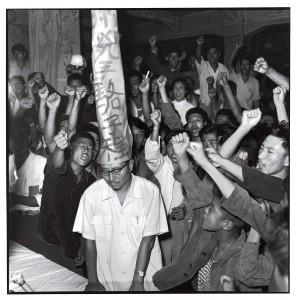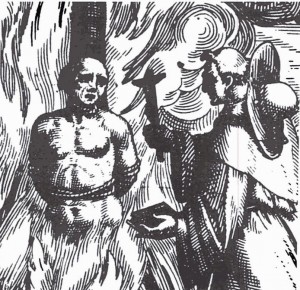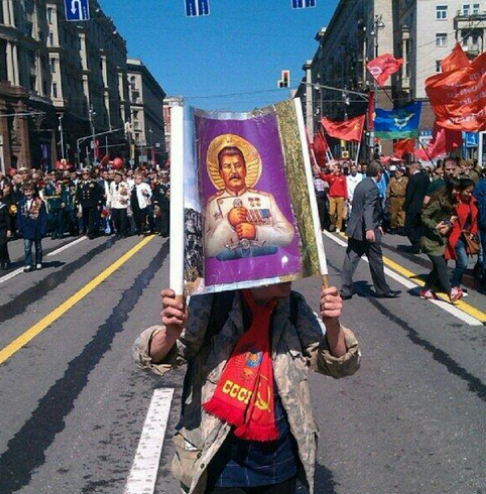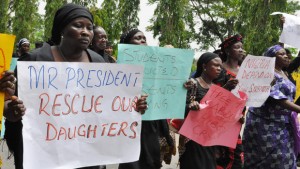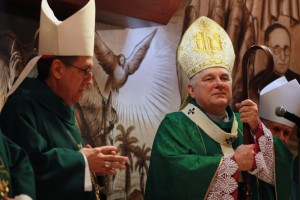 Here’s Miami’s Roman Catholic archbishop Wenski writing from, so to speak, his tax-exempt pulpit, with an attack on the position that the Republican-controlled House has taken on immigration ‘reform’:
Here’s Miami’s Roman Catholic archbishop Wenski writing from, so to speak, his tax-exempt pulpit, with an attack on the position that the Republican-controlled House has taken on immigration ‘reform’:
As the Archbishop of Miami, a region with more than one million immigrants who came to America seeking a better life, I was pleased and hopeful when the U.S. Senate passed a bipartisan immigration reform bill endorsed by the U.S. Conference of Catholic Bishops.
But that was almost a full year ago. Ever since then, the leadership of the House of Representatives has offered a litany of delays and excuses for inaction and obstruction. These political whimpers stand in contrast to the cries of torn-apart immigrant families that echo in parishes across the country. Parents of American children are deported. Eleven million of our neighbors live in constant fear of losing their loved ones, their jobs, their place in a country that has become home.
A nation of immigrants and a beacon of democracy can surely do better. Now is the time for the House to pass common-sense, comprehensive immigration reform that the American people support and the American economy needs…
Wenski appears to know about as much about economics as his (quasi) Peronist boss in the Vatican. The American economy does not “need” immigration reform. And America’s unemployed (the sort of people for whom, incidentally, priests are supposed to care) do not need yet more competitors for the jobs that they would like to have and, in an age of increasing structural unemployment, are likely to find it ever more difficult to secure.
Wenski thunders on:
I believe Speaker Boehner (R-Ohio) knows that passing comprehensive immigration reform is the right thing to do, and that there are enough people of good will in the House to get it done. What remains to be seen is whether these legislators understand the fierce urgency of the situation. Criticism from the partisan base might loom larger than the plight of an altar boy whose father awaits deportation, but which is more important?
This priest, it seems, is not too happy with democracy (or, as he would term it, “criticism from the partisan base”).
Naturally Pope Francis’s notorious Lampedusa talk gets an implicit plug:
Pope Francis…condemns a “globalization of indifference” that takes immigrants’ lives.
Here, again, is some of what Theodore Dalrymple had to say about that particular piece of demagoguery:
In his homily, the Pope decried what he called ‘the globalization of indifference’ to the suffering of which the tragedy of the drowned was a manifestation and a consequence. Our culture of comfort, he said, has made us indifferent to the sufferings of others; we have forgotten how to cry on their behalf. He made reference to the play of Lope de Vega in which a tyrant is killed by the inhabitants of a town called Fuente Ovejuna, no one owning up to the killing and everyone saying that it was Fuente Ovejuna that killed him. The West, said the Pope, was like Fuente Ovejuna, for when asked who was to blame for the deaths of these migrants, it answered, ‘Everyone and no one!’ He continued, ‘Today also this question emerges: who is responsible for the blood of these brothers and sisters? No one! We each reply: it was not I, I wasn’t here, it was someone else.’
The Pope also called for ‘those who take the socio-economic decisions in anonymity that open the way to tragedies such as these to come out of hiding.’
With all due respect, I think this is very loose thinking indeed of a kind that the last Pope would not have permitted himself. The analogy between the two situations, the murder of the tyrant in Fuente Ovejuna and the death by drowning of thousands of migrants, is weak to the point of non-existence. After all, someone in Fuente Ovejuna did kill the tyrant; no one in the west drowned the migrants. Is the Pope then saying that Europe’s refusal to allow in all who want to come is the moral equivalent of actually wielding the knife?
By elevating feeling over thought, by making compassion the measure of all things, the Pope was able to evade the complexities of the situation, in effect indulging in one of the characteristic vices of our time, moral exhibitionism, which is the espousal of generous sentiment without the pain of having to think of the costs to other people of the implied (but unstated) morally-appropriate policy…..
And that’s just fine with Wenski.
Of course, we need to remember that what Wenski is preaching has very little to do with compassion, and a great deal to do with power, and more specifically, the power of numbers. Latino immigration fills pews, and (often) adds support for the Roman Catholic Church’s ideological agenda.
As The Economist explained a month or so back:
Together with a general migration from the north-east and Midwest towards the sunbelt, the number of people leaving the faith has led to a shrinking of Catholicism in its former heartlands…
This shrinking has been offset by growth in the South and southwest of the country. The number of Catholics in the archdiocese of Atlanta has increased by 180% in 2001-11. In these growth areas two-thirds of all Catholics are Hispanic. Hispanics tend to have larger families and their children are more likely to stick with the religion than the offspring of white Catholics. This is causing a big change in the ethnic makeup of the faithful. About a third of American Catholics are Hispanic, but for those under 40 the share rises to almost half.
And that’s what Wenski’s advocacy is really about.

